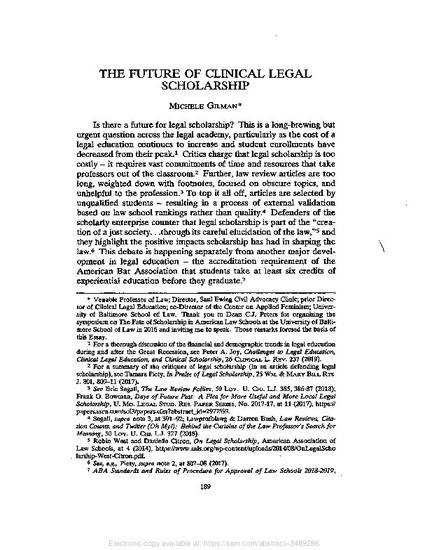
- Law and
- Legal Education
The legal academy is questioning the future of legal scholarship given its costs and perceived disconnect from law practice. However, the future of clinical legal scholarship is typically left out of these debates, although it offers a powerful rejoinder to these recurring critiques – it is deeply engaged with real-world problems, and it has demonstrable impacts. In addition, clinical scholars are an overlooked conduit for disseminating scholarship outside the ivory tower. Doctrinal faculty are unaware how much clinical faculty can ensure their work has an impact beyond SSRN citation counts. As law schools consider how to implement the new accreditation requirement that students take at least six credits of experiential education, scholarship should be part of the calculus. This Essay argues that at this inflection point for legal education, choosing to promote, rather than to further degrade, structures to support clinical scholarship allows the academy to not only ensure quality legal education that graduates practice ready lawyers, but also to support engaged scholarship and enhance the scholarly mission of law schools. In short, the future of legal scholarship and the goals of experiential education are intertwined and hinge on a robust commitment to clinical faculty with security of position who write pursuant to an expansive definition of scholarship.
Available at: http://works.bepress.com/michele-gilman/27/
